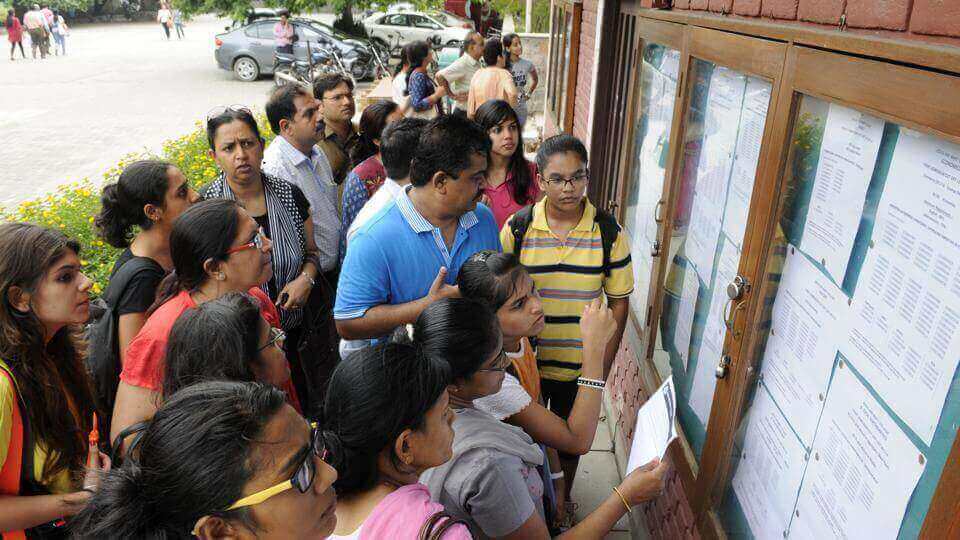The admissions for academic year 2018 are in full swing. The Class XII Board result has been declared and now’s the time when students scamper for a coveted college degree course, a gateway to a secure professional future, writes Dr Jitin Chadha, Founder and Director, Indian School of Business and Finance, for Elets News Network (ENN).
Soon, media publications will be publishing pictures of elation, indifference or downright dejection, as the case may be, of millions of students across the country, based on their ‘fate’ during the college admission procedures. However, the question here is: Are the students of today making smart choices? What if the traditional Plan A does not fructify? What should be the broad contours of these ‘smart’ choices, and do those choices even exist in the country to begin with?
At this stage, most students are choosing both a course and an institution. They are often burdened to have to make a selection between the two, thereby having to compromise the other in the process. Preposterous cut-offs do not help the cause and as a result many are left with neither a preferred course nor a preferred institution. In addition, most Indian universities largely focus on strait-jacket and rigid programmes primarily taught via classroom instruction, with minimal opportunity for students to adapt and apply their learning in real-life or industry situations. No wonder then that the likes of IT czars Azeem Premji and Narayan Murthy have been vocal about the employability of our graduates – even those coming out of premier institutions.
Smart due diligence, and access to smart credit, if not direct above-average financial resources, can however go a long way in helping the school-leaving Indian student realise her/his dreams within India, which is brimming with opportunities and economic potential at present. Plan B, therefore, is as essential as Plan A in trying to secure the higher education of choice, as education cannot be compromised.
What students and their support ecosystem should bear in mind while formulating Plan B is whether the course opted for is relevant and going to stay relevant in the field the student plans to pursue professionally and whether the course and the institution providing the degree have global acceptability. Another criteria could be how that course and institution would strengthen the student’s application for a desired post-graduate course thereafter.
As mentioned, Indian institutions are sometimes constrained on most of these fronts, particularly on the curricula, where many reputed foreign institutions provide the leverage of choosing a combination of subjects, custom-built for the needs of the present and the future. Some educationists, who have seen the benefits of changes in pedagogy, have initiated mechanisms through which they have collaborated with reputed international universities.
Students will do well to research on many such quality programmes running across the country today. These collaborations are manifold and can take many different forms. Exchange programmes, where the students attend a part of the course in the affiliated foreign institution, are quite popular. Another model is where institutions train students in accordance to international standards before admitting them into the foreign institution. In such approaches, the piecemeal aspect is evident.
A more robust methodology, which can be expected to yield better results, is one where reputed international institutions engage deeply with Indian institutions on the academic front and train their faculty members regularly. This leads to capacity building in India, raising the quality of skilled professionals who can then profess, teach, facilitate and mentor students to international standards, in India. Fortunately, this approach too is available to students in India today. As an example, University of London (UoL) offers undergraduate degree programmes for students in India, with academic direction being provided by The London School of Economics and Political Science (LSE), one of the leading academic and research institutions in the world. The courses blend traditional and modern pedagogy and train students through an application-based curriculum, which makes them industry-ready. Students interested in the social sciences, can avail this as a brilliant career option without having to leave the comforts of their homeland.
For students who would have liked to opt for a BA (Hons) degree in Economics in Delhi University (DU), UoL offers a BSc (Hons) degree in Economics, which is applied, taught with new-age pedagogy in India, and represents the highest international academic standards. For students dreaming to secure a B.Com (Hons) degree from DU, the BSc (Hons) degree in Accounting & Finance could be a smart choice, which not only provides a peerless grounding in the subjects, but also helps students gain several exemptions for international professional accountancy programmes such as ACCA, CIMA, ICAEW, ISCA and CPA. Also on offer for students opting for BA (Hons) English in DU are options of similar courses from Duke University of North Carolina. Students wishing to pursue BA (Hons) in Journalism from DU have the option of similar degrees being provided by Domus academy from Italy, while those opting for BCA have the option of an innovative course in Management & Digital Innovation, also offered by UoL.
Similar course structures with different formats are also available for universities in US, Australia, New Zealand and other countries. Many Indian universities have formulated associations with foreign universities to either offer international courses or undertake exchange programmes. However, some courses like those offered by UoL are different as they provide direct hand-holding in terms of teachers’ training by LSE faculty members and even the examinations are formulated and corrected by LSE academicians, with the same stringent parameters that guide their marking of direct LSE students. All this sets students up very well for pursuing higher study and research from the best colleges in the world.
The global acceptance of degrees obtained from renowned international institutions also provides strong leverage when students step into the world of work. Global firms, whose footprint in the Indian economy is increasing every day, are seen to prefer students with an international mindset who have studied a globally renowned programme. Having come through a system of application-oriented learning, such students prove better human resource investments for firms, as they are better able to adapt their skills and knowledge across geographies and business functions.
To conclude, it would suffice to say that students need not take undue stress in today’s times if that coveted DU seat does not fall their way. Indian students today needn’t rely on ‘fate’ and can instead take their destiny in their own hands, by exploring options at home which give them an edge locally as well as globally. So yes, students do have a choice today. All that is required is smart planning and research.






























